Open on Evenings & Holidays! Extended And Flexible Hours!
* DNA Testing for Immigration
* Paternity Testing
* Deceased Paternity
* Forensic Testing & Much More!
Open on Evenings & Holidays! Extended And Flexible Hours!
* DNA Testing for Immigration
* Paternity Testing
* Deceased Paternity
* Forensic Testing & Much More!
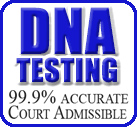
AB DNA Testing Services
Phone: 718-701-0292
We offer New York’s BEST AND MOST AFFORDABLE DNA TESTING with a full range of services to verify family relationships.
We specialize in the following types of DNA tests:
• Paternity • Maternity • Grand-parenting • Sibling Relationship • Biological Relationship Studies • Twin Studies • Deceased Paternity • Forensic Testing • Child Identity Testing • Family Tree and Genealogy Testing
* EVEN LOWER PRICE THAN HOME DNA KITS.
* NO HIDDEN COSTS – Collection kits, photography, and fingerprinting all included.
* 99.9% (OR GREATER) ACCURACY.
* FINAL RESULTS ARE PRESENTED IN A NOTARIZED DOCUMENT IN A CLEAR AND CONCISE FORM.
* ALL RESULTS ARE COURT ADMISSIBLE.
* OVER 15 YEARS EXPERIENCE.
* NO REFERRALS NECESSARY!
* FAST AND PAINLESS SAMPLE COLLECTIONS, USING BUCCAL (Mouth) SWABS.
* SPANISH, PORTUGUESE, FRENCH AND CREOLE SPOKEN.
* PLEASE SEE TRANSLATIONS OF OUR SERVICES IN: SPANISH, BENGALI, URDU, CHINESE AND NEPALESE!
Located In Woodside Queens, easily reachable from all boroughs (Queens, Manhattan, Brooklyn, Bronx and Staten Island), Westchester, Nassau and Suffolk.
We can also schedule DNA tests at our network of collection sites throughout New York city.
Call us. We have found that in many cases, our personalized service can overturn your denial. We will call the passport office or immigration dept. for you and plead your case over phone verbally.
90% of time they will revoke your denial, as long as you get the required information to them quickly.
AB DNA TESTING SERVICES
AB DNA Testing Services © |
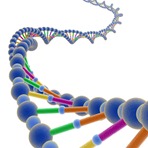 |
718-701-0292 We are open on evenings & holidays! |
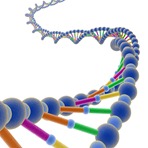 |
Legal Paternity Test: $349
NYS compliant testing only. NO HIDDEN COSTS OR EXTRA FEES.
We do not provide prenatal DNA testing in-house. If you need prenatal testing, we can refer you to a provider we’ve worked with previously:
Prenatal DNA Testing NYC.
AB DNA Testing Services offers a broad range of DNA testing options using certified, accredited laboratories and verified collection procedures.
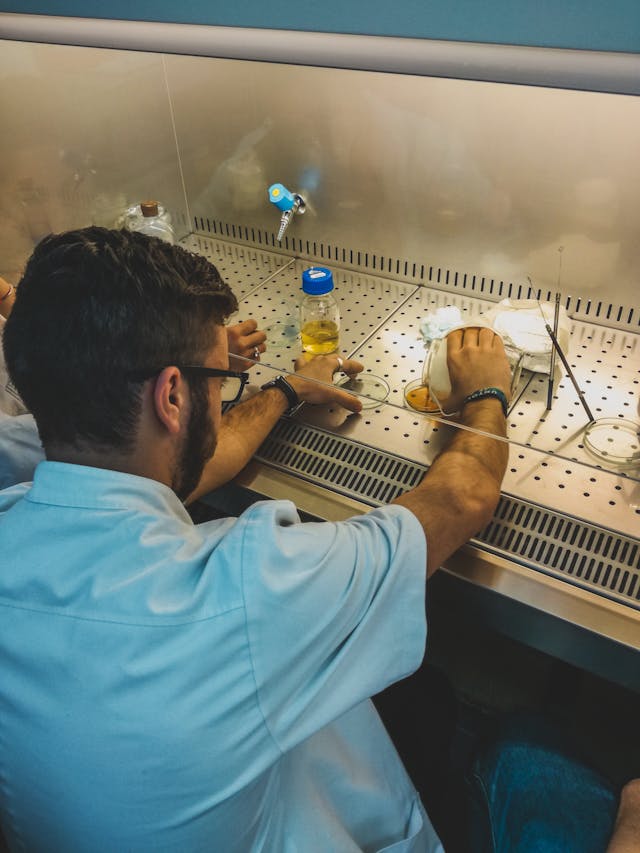 This guide explores what you can learn from your genes through DNA testing and how it can impact various aspects of your life. DNA testing is not just a trend; it’s a scientific revolution that’s unlocking the intricate stories written in our genes. With just a small sample of your DNA, you can embark on a journey of self-discovery, tracing your ancestry, understanding your genetic health risks, and connecting with relatives.
This guide explores what you can learn from your genes through DNA testing and how it can impact various aspects of your life. DNA testing is not just a trend; it’s a scientific revolution that’s unlocking the intricate stories written in our genes. With just a small sample of your DNA, you can embark on a journey of self-discovery, tracing your ancestry, understanding your genetic health risks, and connecting with relatives.
Your DNA, or deoxyribonucleic acid, is the hereditary material in humans and almost all other organisms. Nearly every cell in a person’s body has the same DNA. The information in your DNA is stored as a code made up of four chemical bases: adenine (A), guanine (G), cytosine (C), and thymine (T). Human DNA consists of about 3 billion bases, and more than 99 percent of those bases are the same in all people. The order, or sequence, of these bases determines the information available for building and maintaining an organism, similar to the way letters of the alphabet appear in a certain order to form words and sentences.
DNA tests analyze this genetic sequence to reveal information about your lineage and your body’s blueprint.
Perhaps the most popular reason for DNA testing is to uncover your ancestry. Are you part Native American, Southern European, or Sub-Saharan African? DNA tests can give you a percentage breakdown of your ethnic background, connecting you with regions and cultures you may have never known were part of your heritage.
Genetic testing can reveal predispositions to certain health conditions. Are you at higher risk for breast cancer, Alzheimer’s, or high cholesterol? Knowing your genetic risk can help you take preventive measures or seek early treatment.
DNA testing can also help find living relatives, identify biological parents for adopted individuals, and build family trees. It’s a powerful tool for connecting with distant family members or verifying family lore.
Ever wondered why you have freckles, hate cilantro, or can’t tolerate lactose? Some DNA tests can shed light on these heritable traits, providing fun and sometimes useful insights into the quirks that make you, you.
The process typically involves collecting a DNA sample at home — usually through saliva or a cheek swab — and sending it to a lab for analysis. Weeks later, you receive a report detailing your genetic makeup.
As you consider DNA testing, it’s essential to understand the privacy and ethical implications. Many people have concerns about how their genetic information will be used and who will have access to it. It’s important to research and choose a reputable DNA testing company that clearly states its privacy policy and uses secure methods to protect your data.
With numerous DNA testing services available, it’s crucial to choose one that fits your goals. Are you interested in detailed health reports, or is your focus on building a family tree? Each company offers different services and tests.
DNA testing can be a profound experience, providing insights into your health, history, and the genetic ties that bind us all. It’s a powerful example of how science can offer a deeper understanding of ourselves and our connections to the world around us.
If you’re ready to start your genetic journey and uncover what your DNA has to say, AB DNA Testing Services © in Queens is here to guide you through every step of the process.
AB DNA Testing Services offers a variety of DNA testing services that provide valuable insights into your ancestry, health, and more. Reach out to us to explore what your genes can reveal about you.
AB DNA Testing Services ©
63-11 Queens Boulevard
Woodside NY 11377
Phone: 718-701-0292
What types of DNA tests are generally offered at a DNA testing lab? In Queens and greater New York City, DNA testing services are sought after for various reasons, from establishing paternity to exploring ancestral origins. Each type of DNA test offered is designed to cater to specific needs, providing crucial information for personal, medical, or legal decisions. Let’s explore the gamut of DNA testing options available, including an essential guide on prenatal DNA testing.
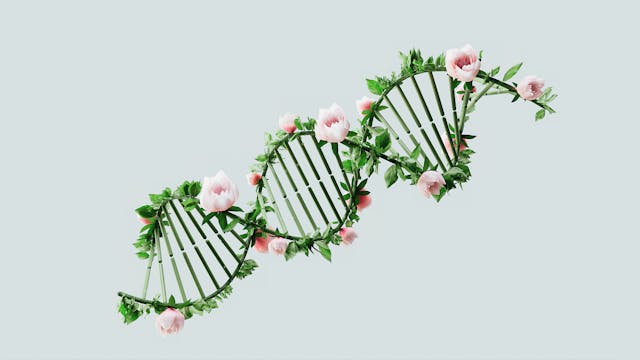
The advancement in genetic testing has expanded the scope of DNA services. Here’s a brief overview of the types of tests provided by DNA testing services in Queens:
Confirming a biological parent-child relationship is the most common reason for DNA testing. Paternity tests are definitive tools used in legal situations like child support and custody, as well as for personal clarification. Maternity tests, although less common, serve a similar purpose.
These tests offer a fascinating insight into one’s ethnic background and ancestral lineage, helping to construct a family’s migratory history. It’s a journey into the past that might reveal unexpected ethnic ties.
To establish other familial connections, such as siblings, grandparents, or aunts and uncles, relationship DNA testing is available. These are particularly useful for verifying family ties in inheritance claims or in reuniting with estranged family members.
Health-related genetic testing can uncover predispositions to certain diseases, allowing individuals to make proactive health and lifestyle changes. These tests are becoming increasingly popular as tools for preventative healthcare.
Immigration DNA testing is a crucial part of the immigration process when it’s necessary to prove a biological relationship. These tests must be conducted with strict adherence to legal standards to ensure the results are recognized by immigration authorities.
DNA testing can also be used in personal situations to provide evidence in cases of suspected infidelity, offering conclusive answers that might impact personal relationships and legal proceedings.
For individuals concerned about hereditary health issues, genetic predisposition testing can reveal the likelihood of developing certain genetic diseases, facilitating informed decision-making regarding health and lifestyle.
Among the DNA testing services, prenatal DNA testing is a particularly sensitive and essential service. This form of testing allows expectant parents to learn about the genetics of their unborn child early in the pregnancy.
One of the prenatal tests offered is non-invasive prenatal paternity testing, which can determine the father’s identity before the child is born. This test is performed by taking a blood sample from the mother and potential father, which is then analyzed for fetal DNA circulating in the mother’s bloodstream.
Prenatal DNA testing also includes screening for potential genetic disorders such as Down syndrome, cystic fibrosis, or Tay-Sachs disease. This information can be pivotal for parents in preparing for any necessary medical interventions or support services.
Additionally, prenatal DNA testing can determine the sex of the baby early in the pregnancy, which can be important for parents concerned about sex-linked genetic diseases.
If you’re considering DNA testing in Queens, it’s important to select a trusted facility like AB DNA Testing Services ©. We provide a wide range of DNA testing services, including prenatal DNA testing, ensuring confidentiality, accuracy, and the highest standards of customer care.
Reach out to us for comprehensive DNA testing services:
AB DNA Testing Services ©
63-11 Queens Boulevard
Woodside NY 11377
718-701-0292
What is in a DNA testing lab? A scientist’s laboratory equipment is their toolset. If they do not have that equipment, they cannot perform DNA testing. The choice of testing equipment depends on the laboratory and the method they use for testing. Different laboratories may use different techniques. Some equipment is compulsory for a laboratory, and some are not so important, so they have alternatives. The most common items that almost every laboratory has:
Some specialized laboratories may also include cell culture, autoclave, or tissue culture, PCR machine or thermocycler, spectrophotometer, etc. However, if a laboratory conducts advanced research, they will have:
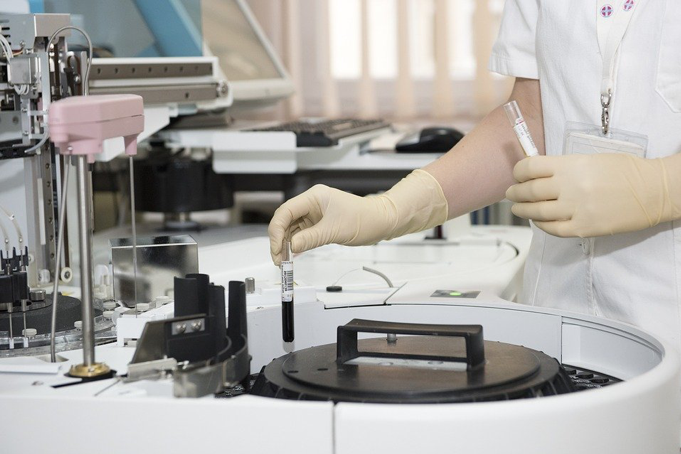
(Source)
When undergoing DNA testing for any reason, you may be confused about the procedure of how laboratory professionals conduct the testing. DNA testing is a scientific technique. To perform DNA testing, professionals need specialized machinery and a laboratory. Below, you will learn about the DNA testing process:
The sample can be your hair or any bodily fluid, as these elements contain DNA. Usually, laboratories gather testing samples through a swab by inserting it inside the mouth to the cheek. This method is the buccal smear and is the least invasive and common method for collecting samples.
In this process, the professionals will break down the cell membrane from the sample. They do so by adding an enzyme in the solution containing DNA samples.
To separate the DNA, professionals use different ways. Electrophoresis is the most common process. In this method, molecules will sort through the electric field. DNA has a molecular structure, so it will separate from the sample.
To make copies of the DNA, professionals rely on the PCR process. After that, they use these copies to test for genetic markers.
In this step, they identify genetic markers from the DNA to discover the relationship. DNA has thousands of genetic markers that we recognize. However, only 16 to 21 genetic markers can report the relationship to prove genetic relationships.
After obtaining the markers, professionals match it with the unknown DNA samples. This will highlight that the DNA donor and the unknown person are the same or not. For paternity DNA testing, only half of the DNA will match the mother. The remaining half comes from the father.
So after receiving the samples, technicians will identify the proteins, chromosomes, and DNA according to the suspect’s disorders. After the testing is complete, they will share the result with the genetic counselor, doctor or the immigration office in reference to the person. They can also send the results directly to the person on request.
For the screening tests of the newborn, doctors take a small sample of the blood by pricking the heel of the baby. However, in this test, the lab only shares the results with the parents if it is positive. Once the test is positive, professionals will perform various tests to find out any genetic disorder that the newborn may carry.
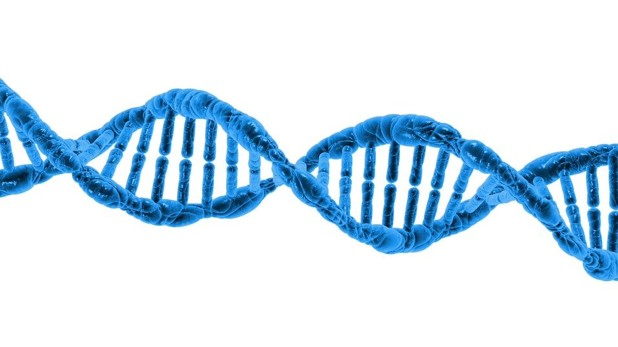
(Source)
If you are the person taking the test, you need to understand the DNA testing process, the limitations and benefits of the testing, and the consequences that may occur after receiving the results. The process of educating a person taking a DNA test and asking for their permission is informed consent.
People need DNA testing for various purposes, such as half or full sibling test, maternity or paternity testing, or to prove their relationship through immigration DNA testing. Regardless, our professional and friendly staff can help every step of the process. Our experts can also support you in a situation where you are born abroad and do not have any citizenship.
We follow an easy and quick sample-collecting process. You will receive the results of your test within three to four days. At AB DNA Testing, we keep good care about timeliness, accuracy, and confidentiality. By trusting us with your DNA testing for immigration, you can relax about the results as we are one of the best DNA testing services.
If you are looking for DNA testing services, contact us at 718-701-0292. You can also visit our website to learn more about our DNA testing services, methods, and location. Our professional and expert technicians are available to assist you through the entire process after a thorough consultation.
DNA testing has become an increasingly common means of finding out information. These tests are carried out for all sorts of reasons such as paternity, relationships, immigration, forensics, and more. You can find out a lot of information from DNA testing but the first thing you have to do is decide which DNA testing center you will go through.
It is important to make the right choice, as this can make all the difference when it comes to speed, service, and other important aspects of the service. In order to find the right facility for your DNA testing, you need to look at a range of different factors. This will make it easier for you to make an informed decision with regards to the center you go to for your tests.
There are various factors that you will need to take into consideration when you are deciding which DNA testing center you should use. Some of the key areas to look at include:
Find out more from our experts
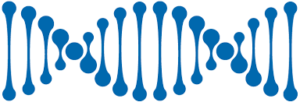 There have been many advancements over recent years both in the world of technology and the world of medicine. This has helped us in many different ways including when it comes to DNA testing. The evolution of DNA testing means that these tests can now discover a range of information and this can be used for all sorts of purposes.
There have been many advancements over recent years both in the world of technology and the world of medicine. This has helped us in many different ways including when it comes to DNA testing. The evolution of DNA testing means that these tests can now discover a range of information and this can be used for all sorts of purposes.
Every year, many people arrange for DNA tests for a wide variety of different reasons. There are specialist DNA testing centers that are able to carry out these tests quickly, conveniently, and accurately, which means you can get the information you require with ease. Of course, you should make sure you choose a reputable and established testing center, as DNA test results are generally extremely important.
So, what sorts of reasons do people have for requiring information from a DNA test? Well, there are many different reasons why people have these sorts of tests carried out. Some of the reasons you may require a DNA test include:
These are just some of the reasons why people decide to have this type of test carried out and the results can provide key information to help those that are tested. Today, reputable DNA testing centers use sophisticated methods that provide you with the most accurate information as quickly and conveniently as possible. This makes it much easier to get the information you want from your DNA test and in some cases the information you receive can literally be life-changing.
When it comes to something as important as DNA testing, you need to get it carried out by experts with a solid reputation. No matter what the reason behind need a DNA test, the information you receive needs to be accurate and provided in a timely manner, which is why you need to ensure you choose the right facility to have the DNA tests carried out.
If you want to benefit from DNA testing by a leading facility in get in touch with our DNA testing in NYC.
If diabetes runs in the family, there is a very strong chance that you too might fall prey to it in the future. However, to stay one step ahead, it will not hurt to get your DNA tested to find out whether or not you can or will show symptoms of a hereditary disease. And for that you should always rely on the best DNA testing center NYC. It may sound frightening, but knowing a bitter truth is always right than a sweet lie. The following powerful reasons will tell why you should get your DNA tested as soon as you can.
Advanced medical research has confirmed that the risk of inheriting a genetic disease is very real and there are millions of people who really can’t do anything about it. But with this being said, alternatives and treatment associated with hereditary diseases have become a possibility as well. We just need to know whether or not we have been affected by a family health problem. For instance, if a family has a history of diabetes, the chances of inheriting it are more in next generation. You can get all the necessary information associated with family health through a DNA test via a DNA testing center in NYC.
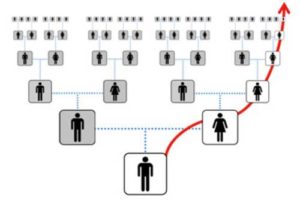 Congenital diseases can remain silent for the longest time – specifically metabolic and autoimmune problems. These diseases do not show any symptoms until you reach a certain age, which is indeed terrifying. It would be an unpleasant and a shattering experience to learn that you have an auto immune disease at the age of 35. For instance, celiac disease remains unnoticed until any severe health issues occur i.e. depression, anemia or worst – colon cancer. Unfortunately, it often gets too late until the person learns about his condition.
Congenital diseases can remain silent for the longest time – specifically metabolic and autoimmune problems. These diseases do not show any symptoms until you reach a certain age, which is indeed terrifying. It would be an unpleasant and a shattering experience to learn that you have an auto immune disease at the age of 35. For instance, celiac disease remains unnoticed until any severe health issues occur i.e. depression, anemia or worst – colon cancer. Unfortunately, it often gets too late until the person learns about his condition.
Knowing the truth about your health may be a bitter experience, but it can save you. You should know everything associated with your health to live a quality life. The DNA test can help make the right decision. For instance, if your family has a history of cardiovascular disease, you may be able to reduce your chances of developing severe symptoms by resorting to an active and healthy lifestyle early on. You may quit smoking, you may not drink that much and you may not eat unhealthy, processed foods.
You can maintain a quality life and healthy family. You just need to find out what your DNA indicates. If it highlights the risk of Crohn’s disease in your family and you have a mutation – how can you stay unaffected? You can limit the chances of it by avoiding stress and developing healthy eating habits. Moreover, after knowing your DNA results and living a healthy lifestyle you will be able to prevent your children to be affected by it.
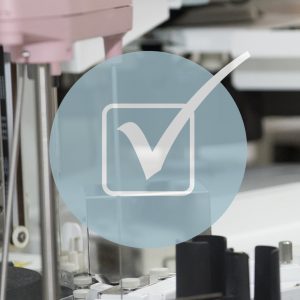 Getting a DNA test performed is surely a major investment to maintain a healthy life. Some diseases become strenuous to treat after reaching to a certain level, but with the help of DNA test you might be able to treat them at an early stage or in most cases, you can take precautions to remain unaffected.
Getting a DNA test performed is surely a major investment to maintain a healthy life. Some diseases become strenuous to treat after reaching to a certain level, but with the help of DNA test you might be able to treat them at an early stage or in most cases, you can take precautions to remain unaffected.
DNA tests for basic family diseases have become a necessity for the modern society. The technology exists. It depends on how much you want to take an advantage of it and to live a quality life. Take out some time, schedule an appointment and get your DNA tested with the most reliable DNA testing center in New York City.
There are various types of DNA tests. When you visit a DNA testing center, they will use one of these tests to determine any genetic information you are looking for based on the information and sources provided. One of the types of tests available is the Deoxyribonucleic Acid DNA test. It can provide a great deal of information about the genetic information you need.
Deoxyribonucleic Acid is a type of molecule. This acid provides very specific biological instructions about a species (remember that animals have DNA, too). It is this acid that contains the blueprint or information that helps to provide answers of how a person is created. This information is passed from one adult to the next in their children through the process of reproduction.
This particular type of testing is considered the most accurate. It is also the most commonly used method for DNA testing. It is a type of test that is widely available not just in the United States but in other countries as well. Because of this straightforward, reliable result, it is one of the best options for immigration options.
The best way for this information to be obtained is through a buccal swab. This is also known as a cheek or mouth cavity swab. The process is very effective and easy. It is also non-invasive, making it an easier option for most patients over a blood test. In short, the buccal swab allows for cells to be collected from the inside check or from within the mouth using a cotton swab. It takes just a moment to complete. The information is then protected and sent off to a DNA testing center for confirmation. The process is rather painless and simplistic, making it an ideal choice for many people.
If you need to obtain a DNA test, it is likely that you will have a Deoxyribonucleic Acid test done in a testing center. It is a process that does not take much time but provides you with the information you need to have to answer key questions. No matter what those questions are, you need a reliable and trusted center to work with to get them.
Call our offices today at 718-701-0292 to schedule your DNA test. We’re the best DNA testing center in New York.
There is always the unknown question out there. Is that child yours? Did your son really conceive this child with someone else? Perhaps you are questioning whether the parent that raised you really is your father. When questions like this occur, it can be hard to sort through details when it comes to birth certificates. Rather, you need to use science to help you. DNA tests can provide that information to you and give you the certain that you need. But, many people don’t realize just how accurate and spot on DNA tests really are. Do you?
Before overlooking the value of a DNA test, consider how they work. Generally speaking, the people to be compared will have the interior of their check swabbed. This process allows for skin cells locate there to transfer to the cotton swab. Then, the DNA testing center can gather those skin cells from both people and compare them. The cells themselves contain DNA, or genetic makeup. It’s a virtual blueprint of the information about who you are. And, with today’s technology, it is possible to learn a great deal from these tests.
DNA tests can help you to learn if you have a high risk of developing heart disease or diabetes. It can help to show your risk of getting cancer. It can determine who your parents were as well as where your ancestry lies. In many ways, these types of tests can answer the questions you have about your family’s history and, in some situations, your future.
There is a low level of risk to inaccuracy. However, 99.9 percent of the time, these tests are accurate. The DNA testing process compares various markers in your DNA to determine if it matches another person’s information, in the cases of paternity. It can significantly provide you with conclusive information about whether or not someone is related to you and even who they are to you.
There is a very low margin of error in DNA testing. This comes from mistakes made during the process. However, the science is very accurate. As long as you work with a trusted and experienced DNA testing center, you can count on the results to be very accurate.
To get the information you need, contact our DNA testing center in New York at 718-701-0292 to book an appointment.
DNA testing for diseases (or molecular testing) can help determine your genetic predisposition for many important health conditions including cancers, cardiovascular conditions and diabetes. For many people, knowing which genetic disorders and diseases they are at risk from will allow them to plan to avoid or reduce it by making lifestyle changes. DNA testing for disease can be done to help determine if you are genetically predisposed for:
Age Related Macular Degeneration
Alzheimer’s Disease
Aneurysm
Atrial Fibrillation
Bladder Cancer
Breast Cancer
Coeliac Disease
Colorectal Cancer
Coronary Heart Disease
Gastric Cancer
Graves’ Disease
Lung Cancer
Lupus
Migraine
Multiple Sclerosis
Obesity
Peripheral Vascular Disease
Prostate Cancer
Psoriasis
Rheumatoid Arthritis
Skin Cancer
Type 1 Diabetes
Type 2 Diabetes
Venous Thromboembolism
The purpose of DNA testing for disease is to let the person being tested know if mutation predisposing to or causing the specific condition or disease are present. It is important to understand that due to the complexity of DNA testing for disease and the significance of the test results, you may want to consult your doctor or a genetic counselor before making any medical or lifestyle changes and for further medical evaluation.
The DNA test for disease is based on the study of SNP (Single Nucleotide Polymorphisms). It is very successful at identifying DNA markers associated with diseases or conditions. It is important to keep in mind that rare variations that affect certain diseases may not be covered by a SNP test as they still have not been discovered or because their incidence is uncommon.
Genetic testing consists of a mouthwash or blood test for the DNA testing lab. Analysis of the sample can determine if you inherited a gene mutation that may contribute to the disease being tested for.
A genetic predisposition report will be provided to you by the DNA testing center. It is for informational and educational purposes only. It does not replace the advice or services of a doctor.
DNA testing for diseases can be performed at most DNA testing centers. It is important to make sure that you choose a testing center that will provide security of any information and hygienic collection of DNA samples you provide.
Contact us today to schedule an appointment with the top DNA testing for diseases center in NYC. Test results are normally ready quickly from date of appointment.
Most of us know who are siblings are and that siblings share more DNA than do unrelated persons. But for various reasons, sometimes people require a DNA confirmation that biological relationship exists. DNA tests can confirm biological ties but will differ based on the relationship and gender of test participants:
The Y chromosome is passed from father to son. By testing the Y chromosome in two brothers it can be determined if they have the same father. This DNA test is 99.9% accurate and it can be used to test a variety of male relations such as grandfather-grandson or uncle-nephew.
Men have one X chromosome which they pass to all their daughters. By testing the X chromosome in two sisters it be determined if they have the same biological father. This DNA test is 99.9% accurate. This test is works best for sisters with different mothers but if they have the same mother, the Mother’s DNA sample can be included.
Mitochondrial DNA is only inherited from the Mother, so a Mitochondrial Test is the best DNA test to see if siblings have the same biological mother. The accuracy of the test strongly depends on the type of mitochondrial DNA sample. When two matching persons have a rare type of Mitochondrial DNA, then they are more likely to be siblings versus two individuals who match with a common type of mitochondrial DNA. The probability of two siblings being related is calculated after the type of DNA is established in the DNA test.
If a man and a woman want to be tested to establish a genetic tie to the same father, then they will need to do a full sibling DNA test. This test is around 90% accurate, and is analyzed to see the amount of DNA shared between the siblings. Accuracy can be drastically increased with DNA from other siblings or the mother.
A DNA test for siblings is easy and painless. A DNA tech will collect a DNA sample by swabbing a small sample of the inside of each person’s cheek. After collection, the sample is submitted to a DNA testing lab and/or DNA testing doctor.
DNA Testing for Siblings can be performed at DNA testing centers. It is important to make sure that you choose a testing center that will provide confidentiality of information and of the DNA samples you provide.